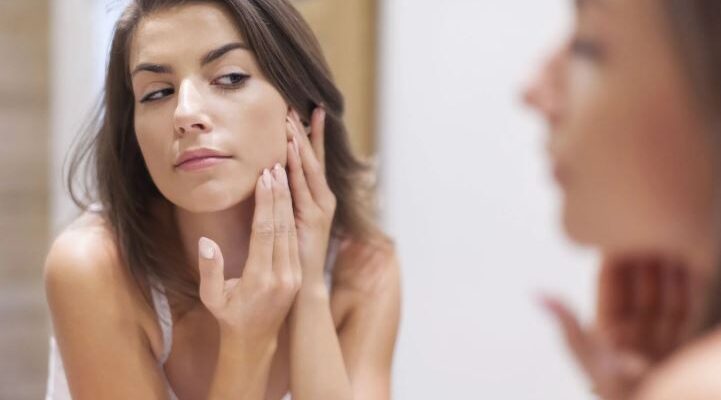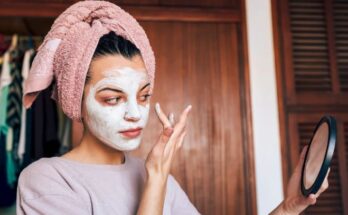Acne is more than just a skincare issue—it’s a condition that affects people’s confidence, mental well-being, and overall quality of life. Whether you’re dealing with occasional breakouts or chronic acne, understanding its causes, treatments, and prevention strategies can make a world of difference. Let’s explore everything you’ve ever wanted to know about acne.
What Is Acne?
Acne is a skin condition that occurs when hair follicles become clogged with oil, dead skin cells, and bacteria. It often appears on the face, chest, back, and shoulders—areas with a high concentration of sebaceous (oil) glands.
Acne manifests in various forms, including:
- Whiteheads: Closed clogged pores
- Blackheads: Open clogged pores that darken due to oxidation
- Papules: Small, red, inflamed bumps
- Pustules: Pimples with pus at their tips
- Nodules: Large, painful lumps under the skin
- Cysts: Deep, pus-filled lesions that can cause scarring
What Causes Acne?
Acne is a complex condition influenced by several factors:
- Hormonal Changes
Hormonal fluctuations, particularly during puberty, pregnancy, or menstrual cycles, can increase oil production, leading to clogged pores. - Excess Oil (Sebum)
Overactive sebaceous glands produce excess oil, which mixes with dead skin cells to form plugs in the follicles. - Bacteria
The bacteria Cutibacterium acnes (formerly Propionibacterium acnes) thrive in clogged pores, triggering inflammation and infection. - Genetics
A family history of acne increases your likelihood of developing the condition. - Diet
High-glycemic foods and dairy products have been linked to acne in some individuals. - Stress
Stress doesn’t directly cause acne but can exacerbate it by disrupting hormonal balance. - Skincare Habits
Using comedogenic (pore-clogging) products, over-washing, or harsh scrubbing can worsen acne.
How Is Acne Treated?
There’s no one-size-fits-all solution for acne, but various treatments target different aspects of the condition.
- Over-the-Counter (OTC) Products
- Benzoyl Peroxide: Kills bacteria and reduces inflammation.
- Salicylic Acid: Exfoliates and unclogs pores.
- Adapalene: A retinoid that helps normalize skin cell turnover.
- Prescription Treatments
- Topical Retinoids: Such as tretinoin, these improve skin renewal.
- Antibiotics: Topical or oral, to reduce bacteria and inflammation.
- Hormonal Therapy: Birth control pills or anti-androgens for hormone-related acne.
- Isotretinoin (Accutane): For severe, resistant acne, this powerful medication reduces oil production and prevents scarring.
- Professional Procedures
- Chemical Peels: Exfoliate and improve skin texture.
- Laser and Light Therapy: Targets bacteria and reduces redness.
- Extractions: Performed by dermatologists to remove stubborn blackheads and whiteheads.
- Microneedling or PRP Therapy: To treat acne scars.
Can Acne Be Prevented?
While you can’t always prevent acne, adopting a proactive skincare routine and healthy lifestyle can minimize breakouts:
- Wash your face twice a day with a gentle cleanser.
- Use non-comedogenic and oil-free products.
- Avoid touching your face or picking at pimples.
- Follow a balanced diet and stay hydrated.
- Manage stress through mindfulness or physical activity.
- Wear sunscreen to protect against post-acne dark spots.
The Emotional Impact of Acne
Acne is more than skin-deep; it can take a toll on self-esteem and mental health. People with acne often face social stigma, anxiety, and even depression. Seeking support from loved ones, joining support groups, or consulting a therapist can help address the emotional challenges associated with acne.
Myths About Acne
Let’s bust some common misconceptions:
- Myth: Acne only affects teenagers.
- Truth: Adults in their 20s, 30s, and beyond can develop acne.
- Myth: Chocolate and greasy food always cause acne.
- Truth: The relationship between diet and acne varies by individual.
- Myth: Washing your face frequently prevents acne.
- Truth: Over-washing can irritate the skin and make acne worse.
- Myth: Sun exposure clears acne.
- Truth: While sunlight might temporarily dry out pimples, it can worsen inflammation and cause long-term damage.
When to See a Dermatologist
If over-the-counter products don’t work after a few months, or if you’re experiencing severe, painful, or scarring acne, consult a dermatologist. Professional care can provide tailored treatments for lasting results.
Final Thoughts
Acne is a common yet deeply personal experience. Understanding its causes, treatments, and prevention strategies empowers you to take control of your skin health. Remember, clear skin is a journey—not a destination—and seeking help when needed is a sign of strength.
Whether you’re navigating occasional pimples or persistent acne, know that you’re not alone. With the right approach, patience, and care, achieving healthy, glowing skin is possible.

